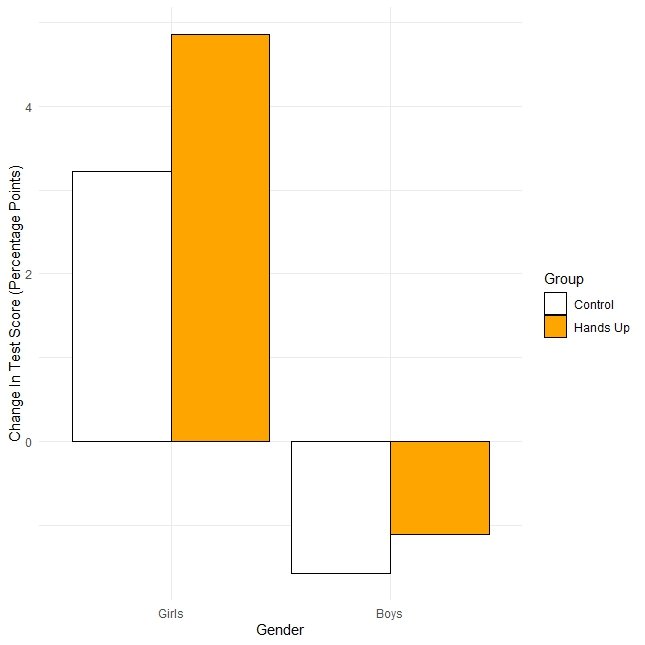Will doing Hands up Project link ups improve the students' English test scores?
Some of our most recent blog posts have focussed on the kinds of activities we’ve done in the ‘Interculturalising the coursebook’ sessions with large classes in Gaza. You can read more about this here and here and here.
But many of our readers will know that we’ve also been researching the impact of doing these sessions on a number of different areas.
The first thing we looked at was test scores. The 200 boys and girls in the experimental groups and the 200 boys and girls in the control groups took two English tests, administered and created by their schools. The first test was the mid semester test and it happened immediately before the students started doing Hands up sessions. The second test happened right at the end of the intervention, after almost 2 months of doing weekly online link ups.
Any changes in the percentage scores between the two tests are recorded in the table below.
As you can see the girls’ test scores overall went up by a few percentage points, and the boys’ scores went down by a few points. You’ll see too that the ‘Hands up’ girls’ scores went up by very slightly more than the control group and the ‘Hands up’ boys’ scores went down by very slightly less than the control group.
Good news?
Not really. The change is so small that it could just be down to chance. We certainly can’t prove from this evidence that doing Hands up link ups improves test scores in English.
But, on the other hand, it wouldn’t really be reasonable to expect to see a big change, would it?
Our work in the Hands up Project focuses on developing spoken English and on communication skills. Neither of these things are tested in Palestinian English tests at all.
In fact these results might be more positive than it appears at first glance.
Teachers and school principals often say that they’d love to do Hands up sessions in their schools but can’t afford to because of the constraints of the curriculum and preparing for the tests. Well those students who took part in the Hands up sessions actually had 20% less class time to prepare for the tests than those who didn’t take part. But they still didn’t do worse in the tests (in fact they did very slightly better) so maybe it’s better news than we thought?
Tomorrow we’ll publish the results of something which did change quite significantly because of the Hands up sessions, and this is something which, in my opinion, is far more valuable than test results.


